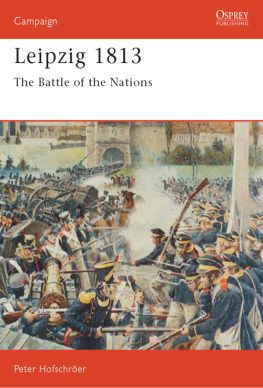FREDERIC SHOBERL.
"Suave etiam belli certamina magna tueri
Per campos instructa, tu sine parte pericli."
Lucret . Lib. ii. 5.
EIGHTH EDITION.
LONDON:
PRINTED FOR R. ACKERMANN, 101, STRAND,
By W. CLOWES, Northumberland court, Strand.
1814.
[Price Five Shillings.]
PREFACE.
After a contest of twenty years' duration, Britain, thanks to her insular position, her native energies, and the wisdom of her counsels, knows scarcely any thing of the calamities of war but from report, and from the comparatively easy pecuniary sacrifices required for its prosecution. No invader's foot has polluted her shores, no hostile hand has desolated her towns and villages, neither have fire and sword transformed her smiling plains into dreary deserts. Enjoying a happy exemption from these misfortunes, she hears the storm, which is destined to fall with destructive violence upon others, pass harmlessly over her head. Meanwhile the progress of her commerce and manufactures, and her improvement in the arts, sciences, and letters, though liable, from extraordinary circumstances, to temporary obstructions, are sure and steady; the channels of her wealth are beyond the reach of foreign malignity; and, after an unparalleled struggle, her vigour and her resources seem but to increase with the urgency of the occasions that call them forth.
Far different is the lot of other nations and of other countries. There is scarcely a region of Continental Europe but has in its turn drunk deep within these few years of the cup of horrors. Germany, the theatre of unnumbered conteststhe mountains of Switzerland, which for ages had reverberated only the notes of rustic harmonythe fertile vales of the Peninsulathe fields of Austriathe sands of Prussiathe vast forests of Poland, and the boundless plains of the Russian empirehave successively rung with the din of battle, and been drenched with native blood. To the inhabitants of several of these countries, impoverished by the events of war, the boon of British benevolence has been nobly extended; but the facts related in the following sheets will bear me out in the assertion, that none of these cases appealed so forcibly to the attention of the humane as that of Leipzig, and its immediate vicinity. Their innocent inhabitants have in one short year been reduced, by the infatuation of their sovereign, and by that greatest of all curses, the friendship of France, from a state of comfort to absolute beggary; and thousands of them, stripped of their all, are at this moment houseless and unprotected wanderers, exposed to the horrors of famine, cold, and disease.
That Leipzig, undoubtedly the first commercial city of Germany, and the great Exchange of the Continent, must, in common with every other town which derives its support from trade and commerce, have severely felt the effects of what Napoleon chose to nickname the Continental System, is too evident to need demonstration. The sentiments of its inhabitants towards the author of that system could not of course be very favourable; neither were they backward in shewing the spirit by which they were animated, as the following facts will serve to evince:When the French, on their return from their disastrous Russian expedition, had occupied Leipzig, and were beginning, as usual, to levy requisitions of every kind, an express was sent to the Russian colonel Orloff, who had pushed forward with his Cossacks to the distance of about 20 miles, entreating him to release the place from its troublesome guests. He complied with the invitation; and every Frenchman who had not been able to escape, and fancied himself secure in the houses, was driven from his hiding-place, and delivered up to the Cossacks, who were received with unbounded demonstrations of joy.
About this time a Prussian corps began to be formed in Silesia, under the denomination of the Corps of Revenge. It was composed of volunteers, who bound themselves by an oath not to lay down their arms till Germany had recovered her independence. On the occupation of Leipzig by the allies, this corps received a great accession of strength from that place, where it joined by the greater number of the students at the university, and by the most respectable young men of the city, and other parts of Saxony. The people of Leipzig moreover availed themselves of every opportunity to make subscriptions for the allied troops, and large sums were raised on these occasions. Their mortification was sufficiently obvious when the French, after the battle of Ltzen, again entered the city. Those who had so lately welcomed the Russians and Prussians with the loudest acclamations now turned their backs on their pretended friends; nay, such was the general aversion, that many strove to get out of the way, that they might not see them.
This antipathy was well known to Bonaparte by means of his spies, who were concealed in the town, and he took care to resent it. When, among others, the deputies of the city of Leipzig, M. Frege, aulic counsellor, M. Dufour, and Dr. Gross, waited upon him after the battle of Ltzen, he expressed himself in the following terms respecting the corps of revenge: Je sais bien que c'est chez vous qu'on a form ce corps de vengeance, mais qui enfin n'est qu'une polionnerie qui n'a et bon rien. It was on this occasion also that the deputies received from the imperial ruffian one of those insults which are so common with him, and which might indeed be naturally expected from such an upstart; for, when they assured him of the submission of the city, he dismissed them with these remarkable words: Allez vous en! than which nothing more contemptuous could be addressed to the meanest beggar.
It was merely to shew his displeasure at the Anti-Gallican sentiments of the city, that Napoleon, after his entrance into Dresden, declared Leipzig in a state of siege; in consequence of which the inhabitants were obliged to furnish gratuitously all the requisitions that he thought fit to demand. In this way the town, in a very short time, was plundered of immense sums, exclusively of the expense of the hospitals, the maintenance of which alone consumed upwards of 30,000 dollars per week. During this state of things the French, from the highest to the lowest, seemed to think themselves justified in wreaking upon the inhabitants the displeasure of their emperor; each therefore, after the example of his master, was a petty tyrant, whose licentiousness knew no bounds.
By such means, and by the immense assemblage of troops which began to be formed about the city at the conclusion of September 1813, its resources were completely exhausted, when the series of sanguinary engagements between the 14th and the 19th of the following month reduced it to the very verge of destruction. In addition to the pathetic details of the extreme hardships endured by the devoted inhabitants of the field of battle, which extended to the distance of ten English miles round Leipzig, contained in the following sheets, I shall beg leave to introduce the following extract of a letter, written on the 22d November, by a person of great commercial eminence in that city, who, after giving a brief account of those memorable days of October, thus proceeds:











